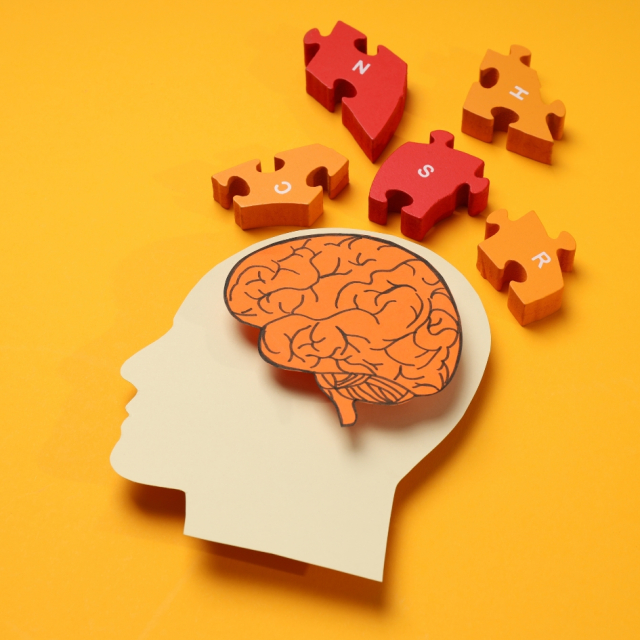Human memory is one of the most fascinating and complex aspects of the brain. It is fundamental to our identity, learning, and daily functioning. Without it, we would not be able to remember the past, learn from the present, or plan for the future. This article will explore the types of memory, how it works, its importance in our daily lives, and what strategies can be implemented to improve it.
What is Memory?
Memory is defined as the brain's ability to record, store, and retrieve information. It is a dynamic process that involves several areas of the brain, especially the hippocampus, prefrontal cortex, and amygdala. According to researchers, memory is not a static storehouse, but a constantly changing system that adapts and reconfigures itself every time we access it.
According to a Verywell Mind article, memory is essentially the process of encoding (converting information into a format the brain can store), storing, and retrieving data when we need it ( Verywell Mind, 2023 ).
Types of Memory.
Human memory is classified into several types according to its duration and function:
Sensory Memory
It is the most basic form of memory and lasts extremely short, usually less than a second. It allows us to process sensory stimuli such as sight, hearing and touch. For example, when we see an image for a few seconds, our sensory memory records it before it disappears.Short Term Memory
Also known as working memory, this is where information is stored for a short period of time, usually between 15 and 30 seconds. For example, remembering a phone number before dialing it. Its capacity is limited and it can handle between 5 and 9 items at a time, according to well-known research by psychologist George Miller.Long Term Memory
This form of memory stores information for longer periods, from minutes to a lifetime. It is divided into two subtypes:- Explicit (Declarative) Memory: Includes conscious facts and experiences, such as remembering a birthday or a recent conversation.
- Implicit (Non-Declarative) Memory: Includes skills and habits, such as riding a bike or playing an instrument.
How Does Memory Work?
Memory operates through three main processes:
Coding
This is the first step, where sensory information is transformed into a format that the brain can understand. For example, when you read a text, your brain converts the words into meanings that you can remember later.Storage
Here, information is stored in different areas of the brain for later use. Short-term memories are stored temporarily, while long-term memories are consolidated in the hippocampus and other brain regions.Recovery
This is the process of accessing stored information. Retrieval may be automatic or require effort, depending on how well the information was originally encoded.
A study by Harvard Medical School highlights that sleep plays a fundamental role in memory consolidation, as it allows the brain to organize and reinforce the neural connections necessary for remembering ( Harvard Medical School, 2023 ).
Importance of Memory in Daily Life.
Memory is essential for virtually every aspect of our lives, including:
Personal Identity
Without memory, we would not be able to remember who we are, our past experiences, or our future goals.Learning and Education
Memory is crucial for acquiring and retaining knowledge. Students, for example, rely on long-term memory to recall concepts and apply what they have learned on tests.Social Relations
Remembering names, faces and shared experiences strengthens personal and professional relationships.Decision making
Past experiences, stored in memory, help us evaluate situations and make informed decisions.
Common Memory Problems.
While memory is an incredible capability, it can also be fragile and susceptible to failure. Some common problems include:
Normal Forgetfulness
We all experience occasional forgetfulness, such as losing our keys or forgetting a name. This is normal and usually not a cause for concern.Age-Related Memory Loss
As we age, our ability to remember may decline. However, memory does not necessarily deteriorate completely; keeping an active brain can reduce these effects.Memory Disorders
Conditions such as Alzheimer's, dementia, and amnestic syndrome can cause significant memory loss and affect quality of life. According to the World Health Organization (WHO), dementia affects more than 55 million people worldwide ( WHO, 2023 ).
Strategies to Improve Memory.
There are several techniques and habits that can help improve memory and keep it in optimal condition:
Mental Exercise
Solving crossword puzzles, learning a new language or playing an instrument are activities that stimulate the brain and improve memory.Physical exercise
Regular physical activity increases blood flow to the brain, which encourages the growth of new brain cells.Healthy Eating
Eating foods rich in antioxidants, omega-3s, and vitamins can improve brain function. Some examples include fish, nuts, fruits, and vegetables.Get Enough Sleep
Sleep is essential for memory consolidation. Experts recommend getting between 7 and 9 hours of sleep per night.Memorization Techniques
Using tools such as associations, mind maps, and spaced repetition can make it easier to retain information.
Human memory is a fundamental pillar of our existence, defining who we are and how we interact with the world. While it is an amazing ability, it is also fragile and requires care. Understanding how it works and what factors affect it allows us to take steps to strengthen and preserve it.
From the importance of a balanced diet to engaging in brain-stimulating activities, there are many ways to improve our memory and keep it healthy. Plus, being aware of the signs of memory problems helps us seek support early if needed.
Sources:
- Verywell Mind: https://www.verywellmind.com
- Harvard Medical School: https://www.health.harvard.edu
- World Health Organization: https://www.who.int
